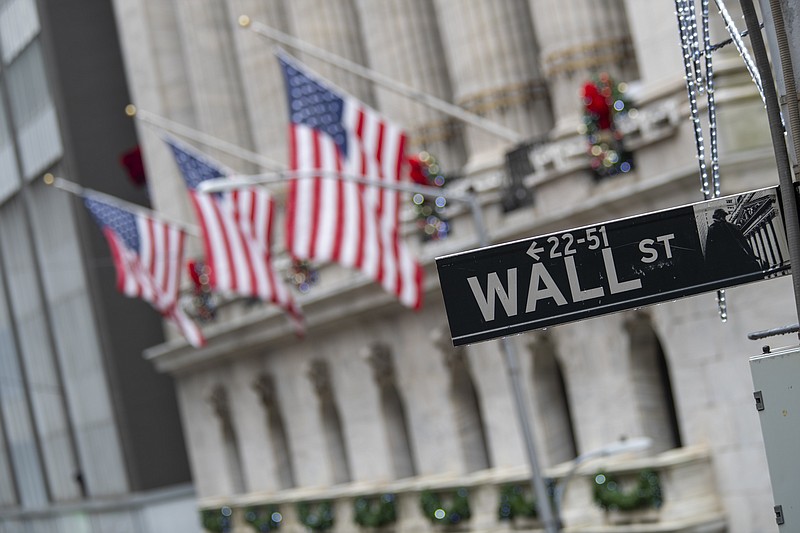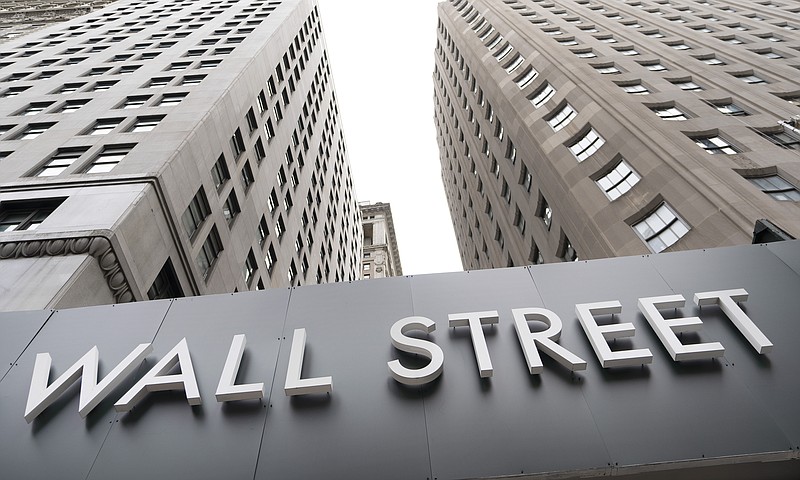Another slide in technology companies helped pull stocks lower Thursday on Wall Street, extending losses from the day before.
The S&P 500 lost 0.84% after having been down 1.7% earlier. The selling was widespread, with eight of the 11 sectors that make up the benchmark index ending the day lower. The sectors that include Amazon, Facebook and Apple took the heaviest losses.
While the market took more losses Thursday, the selling eased toward the end of the day. The S&P 500 fell 28.48 points to 3,357.01. The Dow Jones Industrial Average lost 130.40 points, or 0.47%, to 27,901.98. It had been down 384 points.
The Nasdaq composite, which is heavily weighted with technology stocks, slid 140.19 points, or 1.27%, to 10,910.28. The Russell 2000 index of small company stocks gave up 9.73 points, or 0.6%, to 1,542.60.
[CORONAVIRUS: Click here for our complete coverage » arkansasonline.com/coronavirus]
The selling took place a day after the Federal Reserve said that it will keep interest rates at nearly zero for years to support the wheezing economy. The statement failed to encourage Wall Street and the S&P 500 recorded its first loss in four days on Wednesday.
Low interest rates are usually a boon for investors, sending stocks soaring. So why the sell-off? Analysts gave varying reasons for the market's weakness. Among them: the gloomy outlook Fed Chairman Jerome Powell gave for the economy's prospects and built-up expectations by some that the Fed would be even more generous with its stimulus. It isn't the first hangover stocks have suffered after a rate announcement by the Fed.
"The market really got a bunch of nothing from the Fed," said Shawn Cruz, senior market strategist at TD Ameritrade. "Maybe that would be OK if we were continuing along with the recovery, but the recovery is starting to decelerate."
The sell-off cut into the market's gains this week on Monday and Tuesday. The S&P 500 is still up 0.5% for the week, but down 4.1% so far this month after five-straight monthly gains.
Another possible reason for the downward turn the market has taken the past two days is the diminishing odds that Congress will deliver more aid for the economy anytime soon after benefits for unemployed workers and other stimulus expired recently. Investors say such aid is crucial for the recovery, and Powell talked about the importance of it in a news conference Wednesday.
The Fed's actions in the wake of the economic slump, along with any further actions, could have a diminishing impact and the latest statements may be a "warning shot across the bow of Congress that they need to do something," Cruz said.
A report on Thursday showed that another 860,000 workers applied for unemployment benefits last week. But partisan disagreements on Capitol Hill have delayed any renewal of congressional support.
"Fundamentally, the economy is still moving in the right direction, but the risk of potentially jeopardizing the recovery from reduced fiscal support is becoming uncomfortably high," Piper Sandler strategist Craig Johnson wrote in a report.
Economists say the impact of Congress' inaction may already be showing in the data. Retail sales growth weakened last month, for example, as unemployed workers no longer were getting $600 in extra weekly benefits from the federal government. President Donald Trump issued an executive order in early August to provide a scaled-back version of the benefits, but that program is expiring.
Technology stocks were again at the center of Wall Street's selling. After flying through the pandemic on expectations that their strong growth will only continue, Apple and other superstar stocks suddenly lost momentum earlier this month over worries they had become too expensive.
Apple fell 1.6%, Amazon dropped 2.3% and Facebook lost 3.3%.
Among the gainers was Herman Miller, which jumped 33.5% after reporting much stronger profit for the furniture outlet's latest quarter than analysts expected. It benefited from a rush of people buying furniture for home offices they had to suddenly set up during the pandemic.
Treasury yields fell in a sign of increased caution in the market. The yield on the 10-year Treasury note held steady at 0.69%.
Information for this article was contributed by Joe McDonald of The Associated Press.


